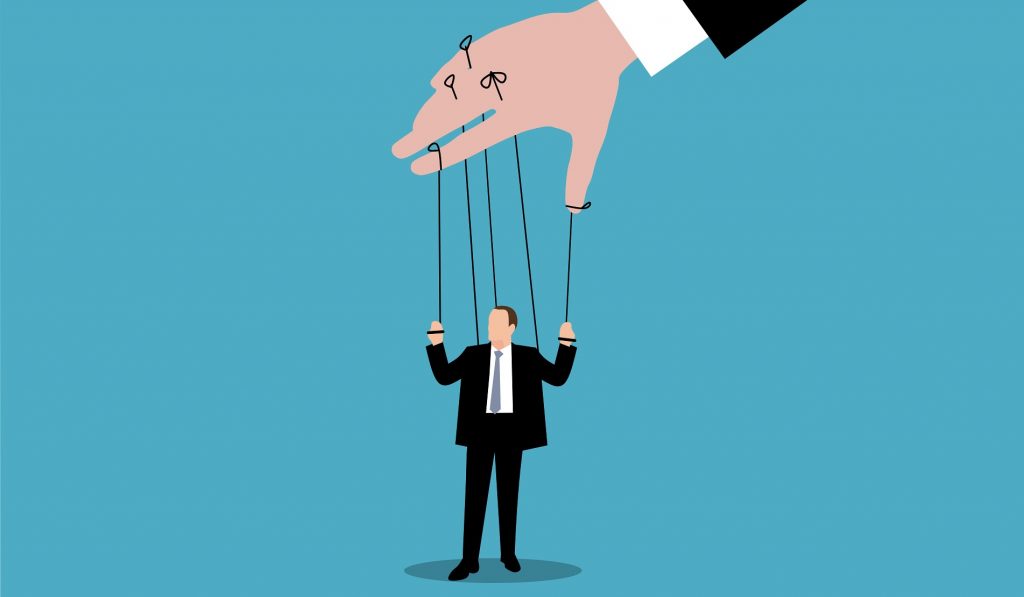
“You have no control over what the other guy does. You only have control over what you do.”
… A. J. Kitt
Most people seek control in their lives. Indeed for many it is a major compulsion that has them go to extraordinary lengths in an attempt to gain certainty over their future. One of the major areas of control people seek is control over others. Although most people don’t do this with any awareness, it is an unspoken backdrop to many relationships. Parents should control their kids; managers should control their staff; captains should control their teams; the list goes on and on.
What does this desire for control mean? Control over others involves being able to get them to do what you want when you want them to do it. However, given human beings always have the possibility of choice about what they do, if we are to control others then we must remove their capacity to choose, as with another’s ability to choose there can be no certainty of control over them. Through the ages those who seek control over others have used a variety of strategies to remove the capacity of others to choose or to reduce their choices to a single proposition. Generally these strategies have involved the creation of fear in those who are to be controlled. The use of violence and threat has played a significant role in this creation. Yet, as long as human beings retain free will, control remains a myth.
In an organisational setting, many managers seek to control their employees and work processes. Such managers are characterised by the lack of trust they show in those who work with them – from the manager’s perspective these people work for them, and indeed, they are not thought of as people, rather as resources. These managers always feel they could do a better job than others and therefore are loathe to delegate work to them. When they do delegate, they micro-manage their staff, wanting to know everything they do. In their fervour to gain control and therefore certainty over the outcomes, they do not see that they damage their situation by minimising the choice for others. They may gain a sense of control, although this is never fully satisfied, but they reduce the quality of the outcomes their group achieves.
The only person we can control is ourselves. That control is based on our self-awareness and, as a result, even our control over ourselves is limited. Why? Most of our actions are habitual and outside of our awareness. As control is intentional it requires awareness. Hence, we can gain greater control over ourselves by enhancing our self-awareness. Rather than control others, we can influence them and this is based on the relationship we have with them. The key question for that influence is “how much do they trust us?” If we hold a belief that we can control others, we look for ways to manipulate and maneuver them to our own ends. We may get some of the outcomes we want, but at a cost. When dealing with situations I invite you to look at solutions in terms of what you can control – actions you can take; and who do you need to influence as a way of resolving your issues.
Related Concepts
Control, Influence and Concern
The Basis of Relationships
The Paradigm of Control
The Paradigm of Trust
Really great article, thank you!